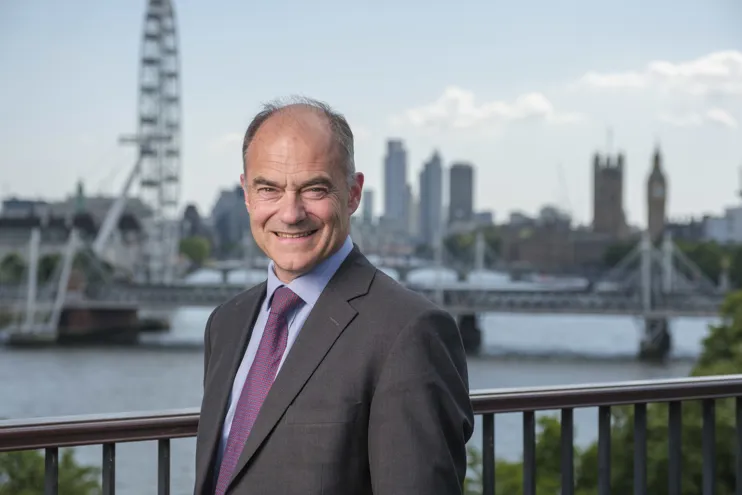From nuclear to net zero
Q&A with IET President, Sir Warren East

Following Sir Warren’s UK president’s address in October 2024 and his Asia tour at the beginning of this year, IET members have been sending in their questions for our president.
From nuclear and net zero to our Institution and the engineering sector, Warren sits down to answer your most pressing questions…
You’re the 143rd president of the IET. What do you think Michael Faraday and his founders would think of the Institution and our profession today?
I hope they would be pleased to see that we have nearly 160,000 members across the globe, and they would be proud of our vision of engineering a better world with our multidisciplinary approach.
In your engineering, science, customer and investment ecosystem model, where do you think we as an IET community need to focus to add the most value?
The interfaces. I highlighted the investment piece as needing attention, but we have a role to play in the interface with government and academia as well. Of course, we must also sharpen our value proposition for the businesses themselves.
It was great to hear you highlight a need for closer working between the IET and its fellow PEIs. What are some of the opportunities for collaboration?
Many of our fellow PEIs have similar objectives and goals, and our resources and ideas would be better used if we collaborate. Pooling resource across most of our activities would make sense for all of us. The barrier is the natural wish we all have to preserve our own identities, and I can see value in that. So, the real opportunity is the development of a collaborative model which is not a route to multiple mergers, but one which allows all of our identities to flourish.
You talked about diverting your years of experience at ‘big engineering businesses’ to support start-ups. What advice would you give to other engineers thinking of doing the same?
I believe that for engineering to deliver benefits properly to society, we need businesses to act as the delivery vehicle. The start-up environment is very challenging, and I’ve seen brilliant engineers in start-ups struggling over business issues, which those with commercial experience would address before they arise. I would encourage engineers to get involved in an advisory role to gain insights, get to know the team and then share in success.
We cannot continuously grow – especially when resources are limited. Is de-growing theory, where we change or collapse, a realistic business and society model to help save our planet?
I agree that infinite growth is hard to comprehend. However, arranging life so that we are more secure, healthy and fed properly is built into human nature. Growth in GDP has led to a reduction in global poverty and better health as richer countries help poorer ones. What we can also see today is a social push back against an ever-growing consumption of resources. Today people talk of the circular economy, recycling is normal in affluent societies, and greater efficiency in use of resources is becoming more valued.
Which areas of engineering are going to make the most difference when it comes to achieving net zero?
Almost all engineering specialisms and disciplines have a role to play in helping us to achieve net zero. Above all, engineering teaches us about systems thinking, and I believe that too much emphasis on specialisms suppresses that.
What’s your view on the role of nuclear power in the UK’s future?
I believe nuclear is inevitable if we are to execute an energy transition away from fossil fuels over the next couple of decades. We cannot afford to wait for fusion to become a reality, so I am supportive of the use of nuclear fission on an interim basis.
